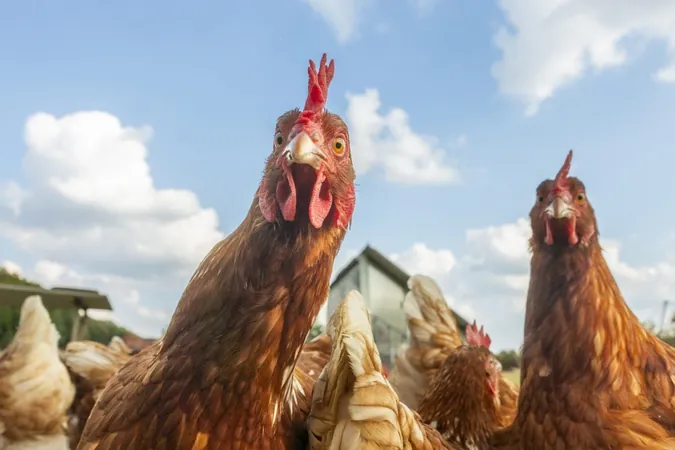
US CDC Shuts Down Emergency Bird Flu Response: What You Need to Know
2025-07-08
Author: Liam
Emergency Response Concluded as Infections Decline
In a significant development, the U.S. Centers for Disease Control and Prevention (CDC) announced on Monday that it has officially ended its emergency response to the H5N1 bird flu virus. This decision comes after a noticeable decline in animal infections and a complete absence of human cases since February.
Monitoring Continues Despite Deactivation
The CDC deactivated its emergency response as of July 2, but clarified that ongoing surveillance and response efforts will be channeled through its influenza division. This merger simplifies reporting, with bird flu updates now incorporated into regular seasonal influenza updates on the agency's website.
Why This Matters: The Impacts of Bird Flu
Over the past year, the H5N1 strain has wreaked havoc on U.S. poultry and dairy industries, infecting around 70 individuals—primarily farm workers—and resulting in the death of one person. The situation not only posed a health risk but also contributed to astronomical egg prices due to the culling of laying flocks. With a full-scale emergency response, resources were allocated to enhance testing and surveillance during heightened outbreak periods.
Background: Response Under Scrutiny
This year's bird flu response has encountered challenges, including staff turnover at the U.S. Department of Agriculture amid efforts to reduce the federal workforce. Moreover, the government took the controversial step of canceling a substantial contract with Moderna for the development of a human vaccine against bird flu.
Current Risk Level and Future Monitoring
Despite ending the emergency response, the CDC asserts that the public health risk from H5N1 bird flu remains low. The agency will continue to monitor the situation and escalate its activities if necessary. Monthly updates will keep the public informed about the numbers being monitored and tested for the virus.
What Comes Next?
As the world stays vigilant on infectious diseases, experts caution against complacency. The ongoing surveillance is crucial, especially considering the potential for the virus to mutate and become more transmissible to humans.









 Brasil (PT)
Brasil (PT)
 Canada (EN)
Canada (EN)
 Chile (ES)
Chile (ES)
 Česko (CS)
Česko (CS)
 대한민국 (KO)
대한민국 (KO)
 España (ES)
España (ES)
 France (FR)
France (FR)
 Hong Kong (EN)
Hong Kong (EN)
 Italia (IT)
Italia (IT)
 日本 (JA)
日本 (JA)
 Magyarország (HU)
Magyarország (HU)
 Norge (NO)
Norge (NO)
 Polska (PL)
Polska (PL)
 Schweiz (DE)
Schweiz (DE)
 Singapore (EN)
Singapore (EN)
 Sverige (SV)
Sverige (SV)
 Suomi (FI)
Suomi (FI)
 Türkiye (TR)
Türkiye (TR)
 الإمارات العربية المتحدة (AR)
الإمارات العربية المتحدة (AR)